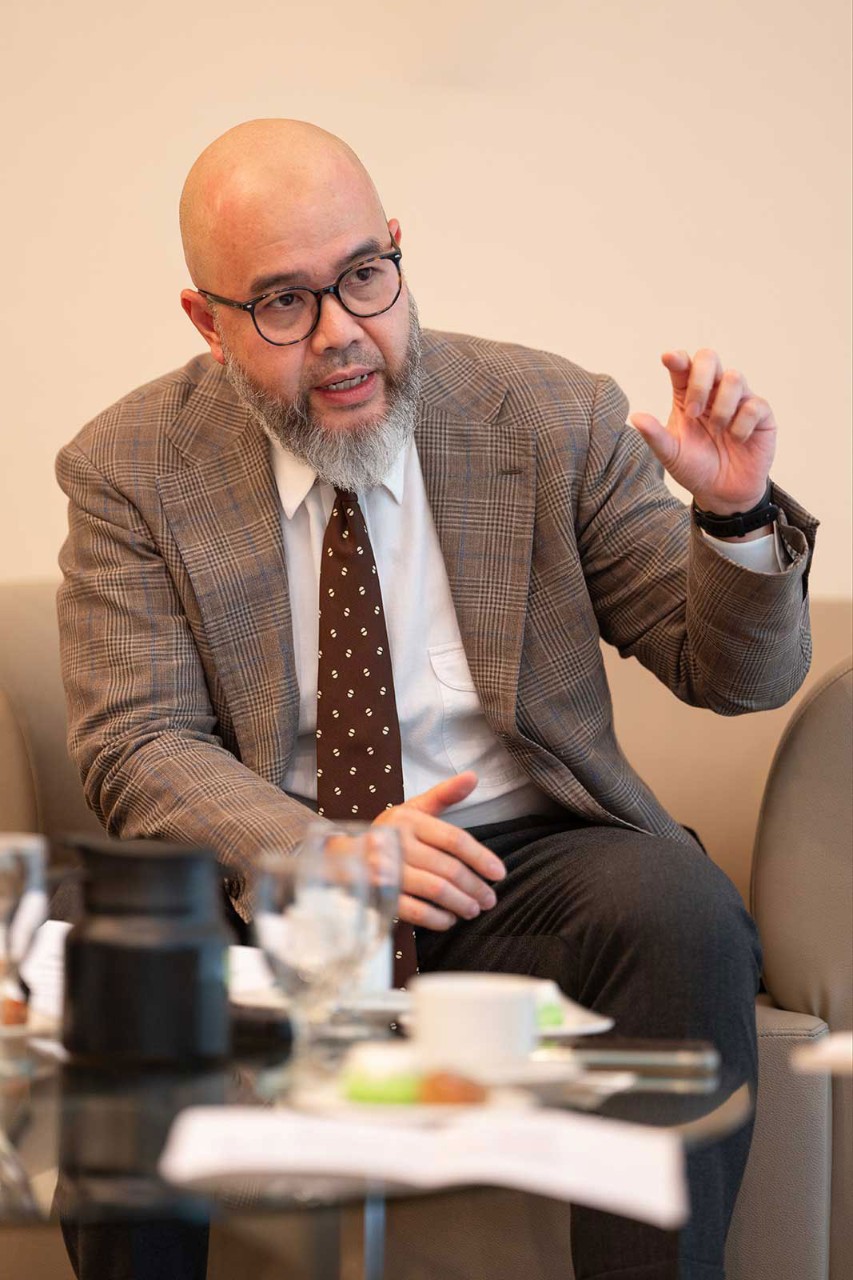
The work of the Audit Oversight Board (AOB) is a cornerstone of capital market supervision and development in Malaysia. The fact that it is under the auspices of the Securities Commission (SC) says a lot about the board’s role.
Harith A Bakar, general manager of the audit regulator, explains: ‘If the accounts of listed companies and other PIEs [public interest entities] in the capital market are trustworthy and reliable enough, people will likely have more confidence in the numbers that are published by these firms. Our function is to make sure that the assurance work over those numbers stacks up to global standards.’
‘Auditors need to be more sceptical and to avoid complacency’

Top scorer
This is why it is significant that Malaysia has consistently scored well in the auditors and audit regulators category of a well-established regional assessment of corporate governance and ESG (environmental, social and governance) performance.
The biennial assessment by the Asian Corporate Governance Association and investment house CLSA covers 12 Asia Pacific markets. Released last December, the latest report has Malaysia at the top of the auditors and audit regulators category, with a score of 92, well above the regional average score of 74. SC chairman Dato’ Seri Dr Awang Adek Hussin describes this as ‘a strong recognition of the AOB’s role in promoting audit quality’.
It is not a first-time recognition. Malaysia came joint first (with Australia) in the previous two assessments.
Higher purpose
The AOB was set up in 2010 to promote confidence in the quality and reliability of audited financial statements.
It regulates the auditors of PIEs and schedule funds in Malaysia. The 1,256 PIEs recorded in 2023 include listed companies, banks, insurers and capital market intermediaries, while the 1,339 schedule funds are mainly unit trust funds and private retirement schemes.
In 2015, the board’s remit was expanded to cover any individual who prepares a report providing financial information of public interest entities and schedule funds in relation to capital market activities.
It is easy to imagine that an awareness of a higher purpose drives the work done by the board. Harith says the AOB team understand deeply that when they do their work well they are helping to protect the savings and capital market investments of a great many people.
Indeed, the importance of audit oversight is why he said yes when the then AOB executive chairman Nik Mohd Hasyudeen Yusoff asked him to join the board. At the time, the regulator was four years into its existence and set to move on from the early establishment stage to the next phase of growth.
By then, Harith had gained broad knowledge and experience working in Europe and Malaysia in a small practice and in two Big Four firms. He feels that the varied exposure has opened his eyes to different points of view and ways of doing things. ‘This has been a tremendous help for me when dealing with arising issues and finding new solutions in my AOB role,’ he says.
AOB in numbers
3
The board’s core functions: to register auditors, inspect auditors and enforce compliance
41
Number of audit firms (of which 37 are Malaysian) registered and recognised by the AOB in 2023
387
Number of individual auditors recognised and registered by the AOB in 2023
278
Number of audit committee members (from 249 public listed companies) the AOB engaged with during 2023 as part of its inspection remit
Evolution
While the board’s prime objective has been the same since day one, its strategies and methods have evolved in response to changes in the business landscape and the audit profession.
The sophistication and volume of transactions by PIEs – many of which have ventured abroad – continue to grow. While these are positive trends for business in Malaysia, Harith points out that they also pose challenges for auditors.
‘It’s not only businesses that are changing; auditing standards are catching up as well’
He says: ‘Auditors need to be more sceptical about what’s presented to them and to avoid complacency when doing their job. They can’t copy and paste the work done in the previous year. Auditing today requires lots of data and technology.
‘They also must have a good understanding of crossborder requirements. There are many fast-paced developments that they have to keep up to date with. And it’s not only businesses that are changing; auditing standards are catching up as well.’
Transparency
By extension, the AOB has to keep pace with the shifting conditions. For example, data analytics now augments the regulator’s work. It is used, for example, in the selection of audit engagements for inspection and in determining audit quality indicators that should be disclosed in the major audit firms’ annual transparency reports.
The requirement that these firms publish their transparency reports is another result of the AOB’s evolution. In its first years, the board’s focus was on the work of the auditors, but that changed as it looked to address the other key stakeholders in the financial reporting ecosystem too.
‘We started engaging with the audit committees of public interest entities so that they are in a better position to rigorously challenge management and auditors on areas of risk and focus,’ says Harith.
The ability to move with the times and realign the organisation accordingly is one that successful audit firms also have to possess – not least when it comes to inspiring the cohorts of young talent they need to survive.
Mismatch
‘There’s this big generational mismatch of ideas and work ethics,’ he says, adding that this relates directly to audit quality because it affects how well audits are performed. What’s more, the failure to effectively address this issue contributes to a high attrition rate that concerns the profession.
‘Each generation has its own merits. Their respective ideals and priorities are different, and that translates into their work ethics.’
The contrast is typically seen between the baby boomers (often the top leaders of an audit firm) on the one hand, and on the other the millennials and Generation Z who form the majority of a firm’s frontliners.
‘You have to contextualise and inspire. It’s no longer about money alone’
‘You have to explain the reasons and the thought process when you want the younger generation to do certain things. You have to contextualise and inspire. It’s no longer about money alone. They’ll apply their own ideas and may go the extra mile when they are sufficiently motivated.’
He adds: ‘They want to be part of a noble cause. The better audit firms are pivoting; while they maintain the baseline of paying competitive salaries, they also do more to impress upon young people that the firm’s work matters a lot.’
CV
2020
General manager, Audit Oversight Board, Securities Commission Malaysia
2014
Deputy general manager and head, Audit Oversight Board
2012
Senior manager, PwC Malaysia
2005
Audit manager, Deloitte Ireland
2000
Audit senior, Byrne Curtin Kelly, Ireland


